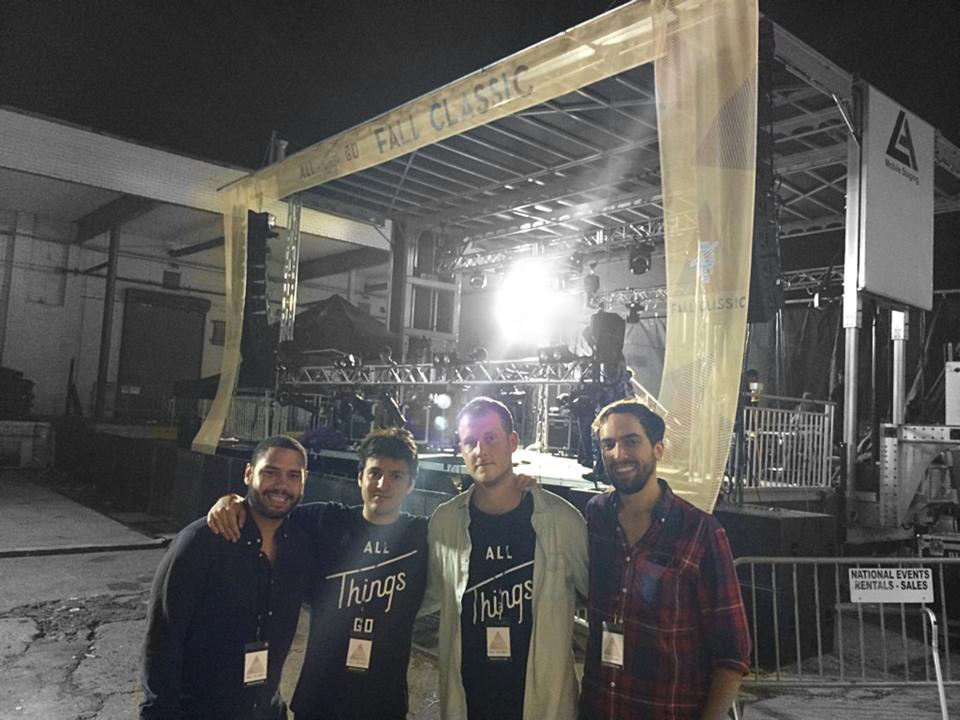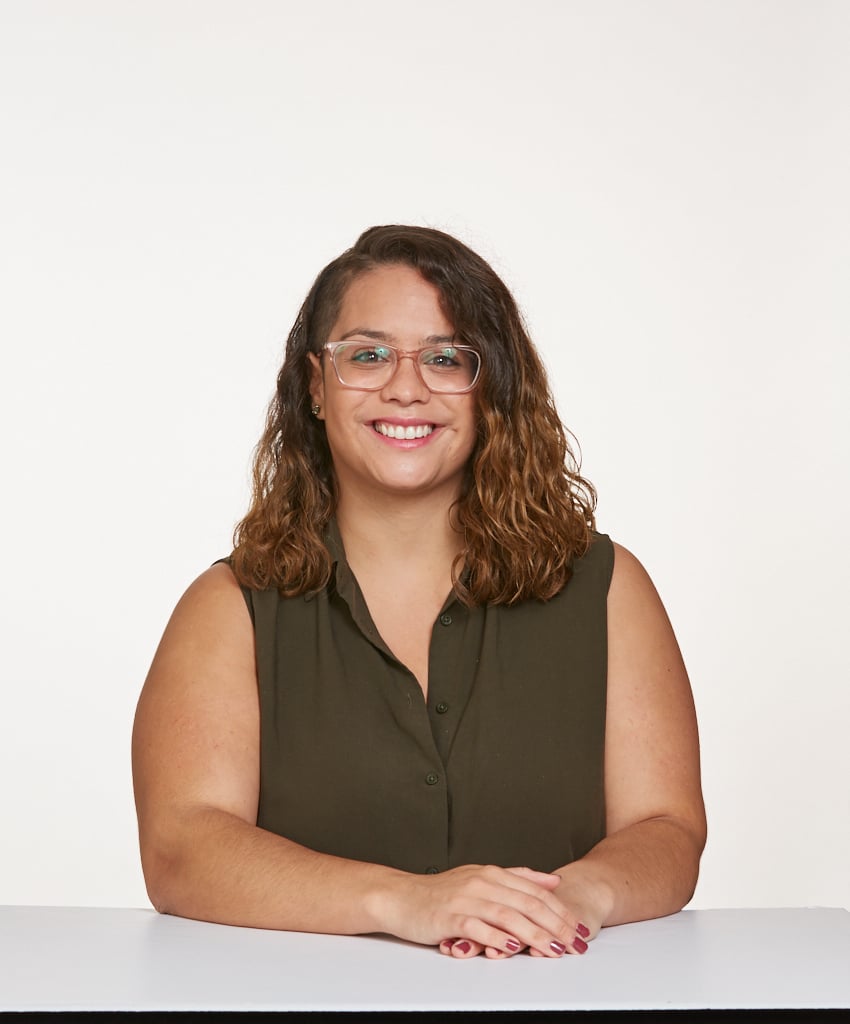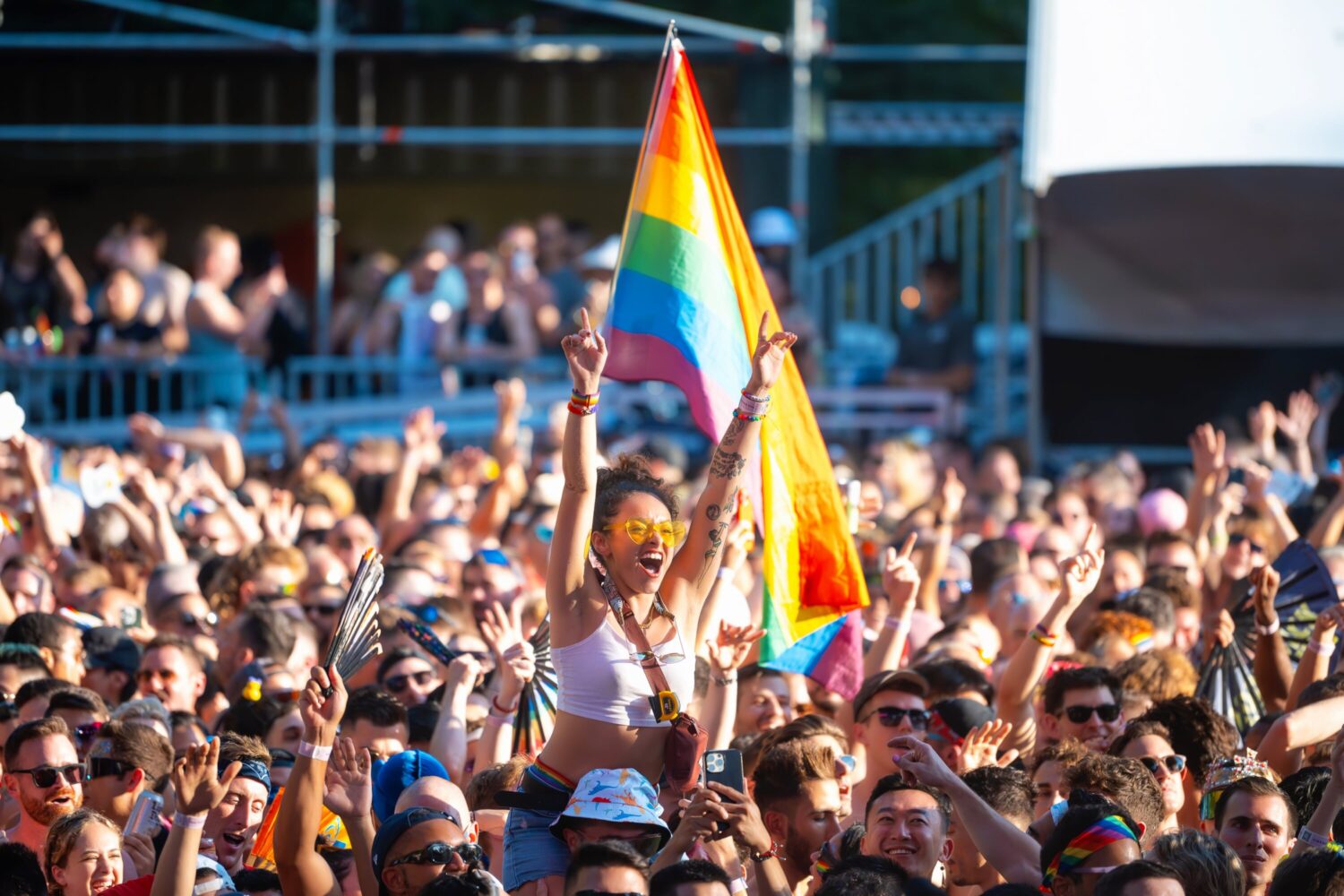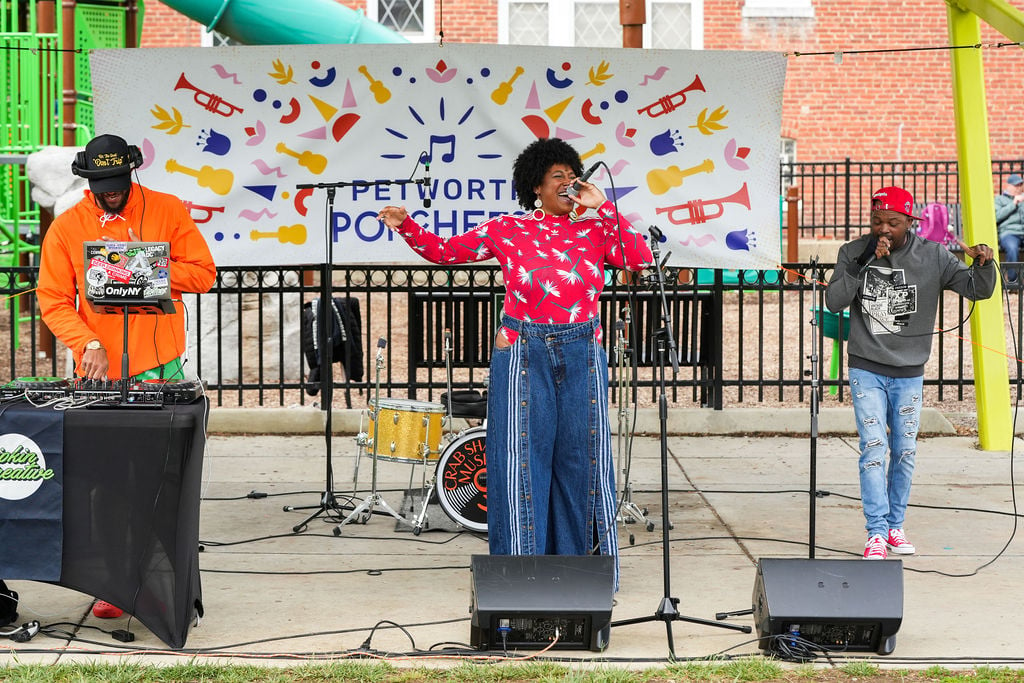The DC-based music blog All Things Go started in 2006 with a couple of friends who were interested in listening and writing about new music including indie, electronic, and rock groups. Zack Friendly, Adrian Maseda, Will Suter, and Stephen Vallimarescu wanted to create a business that would promote live music and local bands. In 2011, they were able to ramp up the blog by hiring more staff to write, photograph, and publish music journalism as they expanded into show production. The group works to include and support local artists in various music genres. On Saturday, October 8, All Things Go will be producing its third annual Fall Classic music festival, which will take place at Yards Park at the Capitol Riverfront.
Suter and Vallimarescu chatted with Washingtonian before their biggest event yet.
So how did you all meet?
Vallimarescu: We all grew up in Washington, DC; we’re all Washingtonians. Zack Friendly and I actually went to high school together. Will and I went to college together, but Will went to a high school nearby. Adrian and I went to elementary school together, and he went to a nearby high school. So we all kind of grew up in the same neighborhood and we had a lot of mutual friends growing up.
When and how did you come up with the idea of a music blog?
Vallimarescu: I went to school in Connecticut and then moved back to DC right afterward, and throughout college, I was involved in the music industry in some facet. I interned at Capitol Records one summer, I worked at Rock & Roll Hotel one summer, so I was kind of involved in some capacity and always wanted to do something that really helped build the music community in DC and I think around the same time Will had moved back to DC.
Suter: Right after college, I moved to New York. I worked at a couple different record labels and music booking agencies just trying to gain experience in the music industry. After a couple years in New York, I actually moved back to DC and that’s when I’d say I really connected with Stephen, Adrian, and Zack. Coming back to DC, I wanted to find a vehicle to do live shows and Adrian and Zack had All Things Go online. We were kind of like, Why don’t we bring all forces together and use All Things Go as the space for this live entertainment company that we wanted to build. So that’s when we formalized the website. Zack Friendly yanked “All Things Go” from a Sufjan Stevens song. We started hiring more writers, getting more content on the site, and at the same time focusing on the club access at U Street Music Hall and 9:30 Club.
What was one of your biggest challenges as you shifted from music blog to live entertainment?
Suter: I think we ran into a couple specific hurdles. One is just getting people into the room. It’s easier to get people to your website for two minutes to five minutes than it is to get them to come to a concert with 500 to 600 capacity concert. I think we learned a lot about how to market a show, initially to our friends and our social network, and then really growing that into an active All Things Go music community. So I think initially it was just getting people there and, you know, getting people to believe in the artist that we were bringing into town. I think it got to a point by the end of our club shows and even with the festival now, we’ve built this brand that people may not know the artists who are playing the shows necessarily but they trust the All Things Go stamp, so they’re more likely to come out and see an artist that they don’t know.
Outside of that, it was the logistics around the show too. A lot of artists that we worked with initially and even to this day are international artists who maybe would have skipped over Washington, DC. Like they do New York, Philly, Boston on the East Coast and then they’ll jump out and just do LA, San Francisco, and Seattle on the West Coast. So early on it was convincing artists that they needed to come to DC and once they were in DC, making sure that there was a crowd there and that they were treated respectfully and felt like “Wow, we want to come back to DC the next time and do another show with you guys.” Tove Lo is a really good example–there was no reason for her to play our festival but through mutual friends we were able to express to her what we were building and she was familiar with the All Things Go brand, which was cool, and I think she somewhat took a risk on us by coming down to the festival, but it really helped her overall success and overall exposure by doing the festival so it was definitely a win-win.
How does All Things Go support local artists?
Suter: We try to have a local artist in each rendition of the festival. We’re mostly talking about artists playing the clubs in DC. The first year we had U.S. Royalty and Young Summer. Last year we had the Walking Sticks—now Shaed—and this year we have Ace Cosgrove, who’s a local rapper. Outside of the festival, we’ve done a good amount of showcases at the Gibson Guitar showroom at U Street Music Hall to try to put local artists onto shows and showcases when the time is right. Over the past few years, there have been a few artists specifically who really fit into our wheelhouse and have either been on the festival and/or a show at U Street Music Hall and/or for sure on the blog. Ace, The Walking Sticks, U.S. Royalty, and Young Summer are artists who we’ve overlapped pretty perfectly from a genre perspective. We’re always looking for local artists to help out by either putting them on shows or writing about them for the blog. The DC music scene is an interesting one especially in the genre that we stick to as far as an alternative and indie/electronic perspective. We try to find what we can in the city. I wouldn’t say the scene is thriving, but at the same time there are artists who are able to get out there and dedicate the time it takes to record an album and to tour–we try to help the scene and be a part of the scene as much as we can.
What are some of the biggest moments you’ve experienced through this journey?
Vallimarescu: I think the first year with Future Islands was a big moment for us, that was the largest event we’d ever thrown and Future Islands was and is one of our favorite bands. Seeing the culmination of all the hard work during their set was a really big moment for us. Their live shows are absolutely incredible, and I think that was a moment that helped us to continue to push to grow the festival and showed the potential of what we can build–and how DC wants to come out to events like this.
Suter: Last year we had Penguin Prison and The Knocks both perform at the festival, and those are both artists that we’ve done a tremendous amount of shows with over the past few years and helped develop from 150-capacity rooms to the 9:30 Club. Knowing those guys and knowing that they were really part of All Things Go and what we were building from day one and then seeing them perform for 4,000-5,000 people for each of their sets, that was really a special moment for me. Their whole team is really appreciative and have been instrumental in building the All Things Go brand and now it’s crazy to see that The Knocks are touring with Justin Bieber for two months in Europe, and I feel like we’ve been a part of their story as much as they’ve been a part of our story.
Check out the exciting line up for the 2016 Fall Classic here.


















